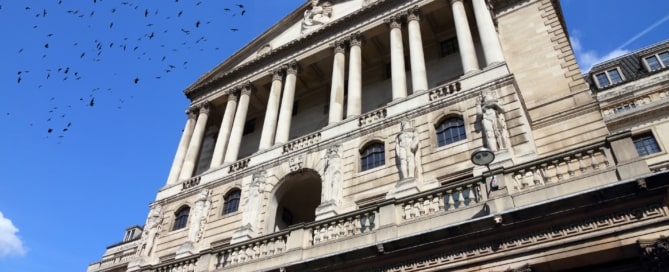In an era of unprecedented financial upheaval and inflationary pressures, the Bank of England confirms safeguards against inflation, signalling robust measures to protect the UK economy and maintain public confidence. Recent global banking turbulence, including UBS’s urgent acquisition of Credit Suisse, has intensified scrutiny on financial institutions and central banks worldwide. Against this backdrop, the Bank of England has reiterated its unwavering commitment to inflation control while safeguarding the resilience of the UK’s banking system.
A Coordinated Global Response to Financial Market Volatility
UBS’s emergency takeover of Credit Suisse, backed by the Swiss government’s intervention, has sent shockwaves through international markets. This swift action was essential to prevent systemic risks cascading through the global financial network. The Bank of England has emphasised the vital role of international cooperation, joining forces with other major central banks such as the United States Federal Reserve, the European Central Bank, and the Bank of Japan to stabilise financial markets and ensure liquidity remains abundant.
One key tool in this effort has been the expansion of US dollar swap lines—from weekly to daily operations—between these central banks. This strategic move guarantees smoother access to essential liquidity, ensuring businesses and households continue to receive credit even in strained market conditions. The Bank of England has committed to maintaining these enhanced liquidity provisions for the foreseeable future, underlining its proactive stance on financial security.
Reassuring the Public: Strength of the UK Banking System
Central to the Bank of England’s messaging is reassurance about the strength and stability of the UK banking sector. The institution confirms that UK banks remain well-capitalised and sufficiently funded to withstand external shocks without compromising economic security. This resilience is critical in maintaining consumer trust and preventing panic-driven behaviours like sudden large withdrawals, which could exacerbate financial instability.
Moreover, the Financial Services Compensation Scheme (FSCS) protects bank deposits up to £85,000 per individual, offering an additional safety net that reassures UK savers and businesses alike. In a time of heightened uncertainty, this guarantee is crucial in sustaining confidence in the domestic financial system.
 Visual representation of the UK banking system infrastructure
Visual representation of the UK banking system infrastructure
Inflation Control: Balancing Act Amid Economic Challenges
Inflation remains one of the most pressing challenges facing policymakers. The Bank of England is focused on hitting a delicate balance between tightening monetary policy to curb rising prices and avoiding actions that might destabilise the fragile economic recovery. The recent significant interest rate hike by the European Central Bank, which raised rates to 3.5%, reflects the broader urgency among global monetary authorities to contain inflationary pressures.
While inflation continues to weigh heavily on household budgets and business costs, central banks are closely monitoring the impact of their decisions on financial stability. Experts widely view recent banking sector disruptions—such as the Credit Suisse crisis and Silicon Valley Bank failure—as isolated events rather than signs of systemic weakness. This perspective allows the Bank of England to maintain a firm but cautious approach to monetary tightening.
What This Means for UK Consumers and Investors
For UK consumers, property buyers, and investors, the Bank of England’s firm stance offers reassurance and a clear signal to prepare for ongoing economic shifts. Rising interest rates directly influence borrowing costs, especially for those with variable or tracker mortgages. Locking in fixed-rate mortgages can provide much-needed certainty amid fluctuating market conditions.
Investors must remain vigilant in this climate of uncertainty. Diversifying portfolios, seeking professional financial advice, and staying updated with central bank announcements are key strategies to mitigate inflation and interest rate volatility risks.
Additionally, safeguarding deposits by banking with FSCS-protected institutions remains essential for preserving financial security.
 Bank of England reassures public on inflation measures
Bank of England reassures public on inflation measures
Looking Ahead: Navigating an Uncertain Economic Landscape
As inflationary pressures persist, the Bank of England is poised to continue adjusting its monetary policy to stabilise prices while protecting economic growth. Market, businesses, and consumers will closely watch upcoming interest rate decisions by the Bank and other global central banks.
The ongoing coordination among international financial institutions highlights a shared commitment to maintaining liquidity and financial system health, which bodes well for the UK economy’s resilience.
Practical Financial Advice:
- Review mortgage options focusing on fixed rates to hedge against rising interest costs.
- Stay informed on central bank policy changes and inflation trends.
- Consult financial experts to tailor investment strategies amidst economic volatility.
- Ensure deposits are held within FSCS-covered accounts for maximum protection.
Conclusion
The Bank of England confirms safeguards against inflation through decisive action and international collaboration, underpinning the UK’s financial stability in uncertain times. While inflation remains a formidable challenge, the UK’s banking system is well-prepared to face these pressures, reassuring consumers and investors alike.
By remaining informed, adaptable, and financially prudent, someones and businesses can confidently navigate the intricacies of today’s economic environment. For expert guidance on mortgages, investments, and financial planning during these turbulent times, our team at The Property Buyers is ready to support you with trusted advice tailored to your needs.
Frequently Asked Questions
1. How does the Bank of England actively protect the UK economy against inflation?
The Bank of England manages inflation primarily by adjusting interest rates to influence borrowing and spending. When inflation rises, the Bank typically raises rates to cool down the economising, making loans more costly and reducing consumer demand. It also carefully monitors economic indicators and collaborates with global central banks to maintain overall financial stability and confidence.
2. Are my savings safe in UK banks during economic uncertainty?
Yes. UK savers benefit from the Financial Services Compensation Scheme (FSCS), which guarantees deposits up to £85,000 per individual per authorised institution. This protection ensures that your savings remain secure even during market volatility or banking crises, providing peace of mind in uncertain times.
3. What impact do rising interest rates have on mortgage holders?
An increase in interest rates usually leads to higher mortgage repayments, especially for those with variable or tracker mortgages whose rates fluctuate with the Bank’s base rate. Homeowners on fixed-rate deals typically see no immediate change until their contract expires. Still, it’s wise to review mortgage terms regularly and consider locking in fixed rates to safeguard against future hikes.
4. How do central banks like the Bank of England work with other institutions globally?
Central banks coordinate through mechanisms such as currency swap lines and joint liquidity support to ensure sufficient access to key currencies, like the US dollar. This cooperation helps ease pressures in international funding markets, keeping credit flowing smoothly to businesses and households, even amid financial stress.
5. What steps should consumers and investors take to navigate inflation and market instability?
Prudent financial planning is essential. Consumers should consider fixed borrowing costs to protect against rising interest rates and maintain savings buffers for unexpected expenses. Investors are advised to diversify portfolios and seek professional advice to mitigate inflation risks and respond effectively to shifting economic conditions.


 Visual representation of the UK banking system infrastructure
Visual representation of the UK banking system infrastructure Bank of England reassures public on inflation measures
Bank of England reassures public on inflation measures






